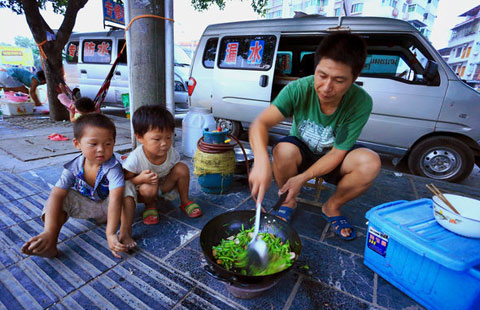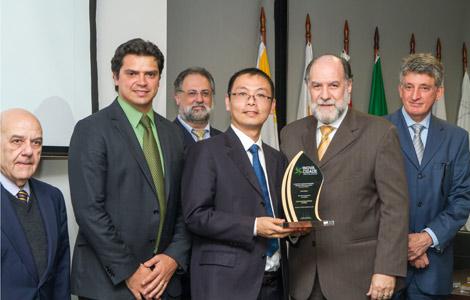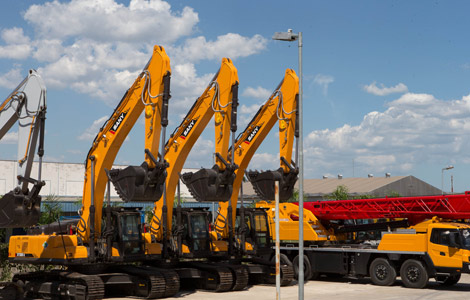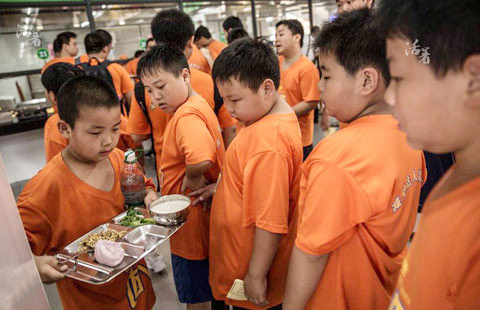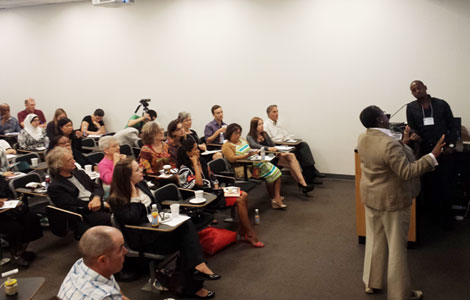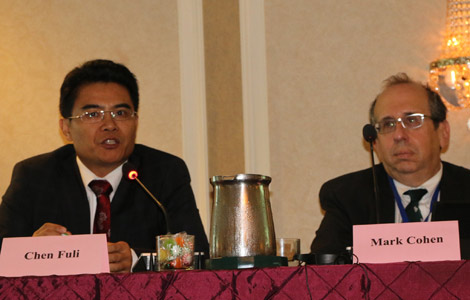Ease taxes to boost industry, experts suggest
Updated: 2014-09-15 08:02
By Su Zhou in Macao(China Daily)
|
||||||||
The tax burden on the tourism industry should be eased to encourage further development of the sector and enable it to make a larger contribution to economic growth in the Asia-Pacific region, according to officials and experts who spoke during the Asia-Pacific Economic Cooperation Tourism Ministerial Meeting in Macao.
Martin Craigs, chief executive of the Pacific Asia Travel Association, has been urging the UK government to cut taxes on travel for many years.
"Taxing tourism and travel will eventually damage the industry," he said.
APEC's tourism working group is examining the case for lower taxes and will deliver its findings next year.
Private sector representatives, finance ministers, tax officers and tourism officials from the 21 APEC member economies are expected to meet to discuss the results.
The members will be encouraged to adjust their tax polices in due course. The study is being led by the Philippines.
One of the charges that Craigs believes should be scrapped is the air passenger duty, or departure tax, paid by air travelers leaving the UK.
"If they are allowed to do this, then others will start to copy it and this will eventually damage the sector," he said.
Rolando Canizal, assistant secretary of the Philippines' tourism development planning office, agreed that this tax has a negative effect on tourism destinations, especially those in the Asia-Pacific region.
"It discourages countries from trying to attract more British nationals to visit and it affects the revenue generated from a trip," said Canizal.
The APEC study "will only offer support and suggestions", he added. However, he believes it will be influential because "information will trigger discussion on tax reforms".
Tourism is expected to contribute more than $650 billion to the APEC economies in 2016.
Member economies could attract up to 57 million additional international arrivals by 2016 if policy changes are made in areas such as taxation, according to the World Tourism Organization. This would create 2.6 million jobs.
A report by KPMG says all economies apply a range of taxes to the travel and tourism sector, such as passenger service tax, entertainment tax and hotel and restaurant tax, but few taxes directly support the sector.
Some countries, such as Japan and Malaysia, are already adjusting their tax polices.
"In Japan they have introduced value-added tax refunds for tourists, so whatever they buy in Japan they can apply for a tax refund when they are about to leave," said Canizal.
Pang Su-Seng, acting rector of the City University of Macao, said tax reforms are hard to achieve but would definitely boost the region's economy and leverage the influence of APEC members.
"In the past we have seen many cases where fast economic development has been achieved because of preferential tax polices," said Pang.
"However, the Asia-Pacific region is very large with 21 economies, and each country has special interests to consider."
Contact the writer at suzhou@chinadaily.com.cn
Most Viewed
Editor's Picks

|

|

|

|

|

|
Today's Top News
Sinopec privatization biggest in Xi's tenure
Beijing to tighten foreign hiring requirements
More CFAs buoy hopes for finance
Hillary Clinton takes a big step toward 2016
US teachers visit China on fellowship
Silk Road, climate change on agenda
Boosting innovation in Latin America
China, LatAm see rosy trade prospect
US Weekly

|

|
